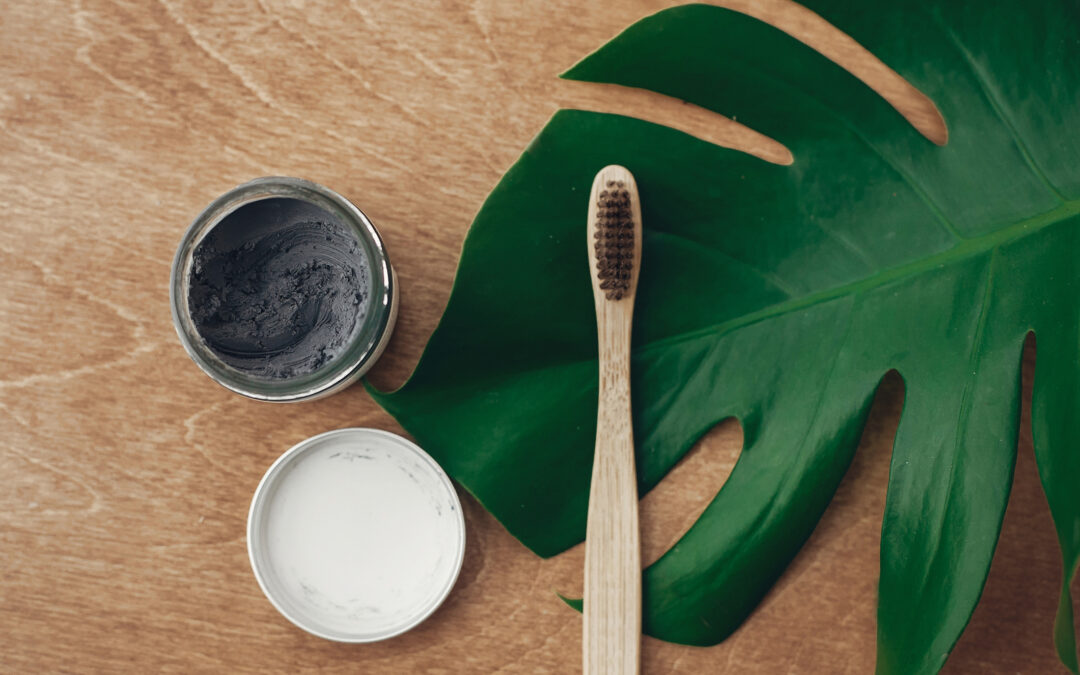
by Mrs C | Feb 14, 2024 | Health Care
In the realm of beauty and personal care, products that enhance your appearance can also play a crucial role in maintaining your health. From skincare to dental hygiene and hair care, the right products not only make you look good but also contribute significantly to your overall well-being. Understanding the health benefits of these products is key to making informed choices that go beyond just cosmetic appeal.
Skincare Products
Skincare is more than just keeping your face looking youthful and radiant; it’s about maintaining the health of your skin. The skin is the body’s largest organ and serves as the first line of defense against environmental aggressors like pollutants and UV rays. Using sunscreen is essential for protecting your skin from harmful UV rays, which can cause sunburns, premature aging, and increase the risk of skin cancer. A broad-spectrum sunscreen with an SPF of 30 or higher is recommended for daily use. Moisturizers are also vital, especially for those with dry or sensitive skin. They help maintain the skin’s natural barrier, preventing issues like dryness, itching, and irritation. Look for products containing hyaluronic acid or ceramides, which effectively lock in moisture.
Dental Hygiene Products
Good dental hygiene is critical for oral health and overall well-being. Dental issues can lead to more serious health problems, including heart disease. Using the right dental hygiene products is essential for maintaining a healthy mouth. A key product is fluoridated toothpaste. Fluoridated toothpaste helps reinforce teeth against cavities by strengthening tooth enamel and combating the acids produced by plaque bacteria. It’s also essential to use a soft-bristled toothbrush and replace it every three to four months or sooner if the bristles are frayed. Mouthwash can also be a valuable addition to your dental routine, especially those with fluoride or antibacterial ingredients. It helps reduce plaque, prevent or reduce gingivitis, reduce the speed that tartar develops, or produce a combination of these effects.
Hair Care Products
While often chosen for cosmetic reasons, hair care products also have a significant impact on the health of your scalp and hair. A healthy scalp is crucial for hair growth and preventing issues like dandruff and hair loss. Choosing the right shampoo and conditioner is crucial. Look for products suited to your hair type that can help address specific issues like dryness, oiliness, or sensitivity. Ingredients like tea tree oil or salicylic acid can be beneficial for scalp health. Hair masks and serums can also be beneficial, providing extra nourishment and protection to your hair. These products can help restore moisture, repair damage, and protect hair from environmental stressors like pollution and UV rays.
Beauty products are more than just tools for enhancing appearance; they play a significant role in maintaining health and well-being. Choosing the right skincare, dental hygiene, and hair care products not only improves your physical appearance but also contributes to your overall health. Making informed choices about these products can lead to better health outcomes and a more confident, radiant you.
Did You Enjoy Reading This Article? Here’s More to Read: How to Be Smart When Planning Your Wedding

by Mrs C | Nov 15, 2023 | Blog
In a world filled with convenient but often less nutritious options, making the choice to buy fewer processed foods can have a significant impact on your life. This decision not only leads to cost savings but also paves the way for healthier meals and reduces waste. Whether you’re looking to save money or improve your overall well-being, here are some compelling reasons to consider cutting back on processed foods.
Cost Savings
One of the most compelling benefits of buying fewer processed foods is the cost savings it offers. Processed foods often come with a higher price tag due to the convenience factor. Opting for whole, unprocessed ingredients can be more budget-friendly in the long run. When you buy ingredients like whole grains, legumes, and fresh produce, you can stretch your food budget further. These items are not only versatile but also cost-effective, allowing you to prepare multiple meals from a single purchase. When you reduce the consumption of processed snacks and pre-packaged meals, you can redirect your budget towards more nutritious options. This can have a significant impact on your overall health and well-being. Buying whole foods in bulk or in their seasonal peak can also lead to cost savings. When produce is in season, it is often cheaper due to increased supply. Buying in bulk can also save money, as the cost per unit decreases when purchasing larger quantities. Cooking from scratch allows you to control portion sizes and reduce food waste, further contributing to cost savings.
Healthier Meals
Choosing fewer processed foods opens the door to healthier meal options. Whole, unprocessed foods are packed with essential nutrients that contribute to your overall well-being. Fresh fruits and vegetables are essential to healthy teeth. Incorporating these nutritious options into your meals can lead to improved energy levels, better digestion, and a stronger immune system. The absence of excessive additives, preservatives, and artificial ingredients in unprocessed foods can also contribute to better overall health. You’ll find that cooking with whole ingredients allows you to take charge of your nutrition and create meals that suit your specific dietary needs. Fresh produce is a crucial component of a healthy diet. Fruits and vegetables are high in vitamins, minerals, and fiber, which can help reduce the risk of chronic diseases such as heart disease, diabetes, and certain types of cancer.
Reduce Waste
Another compelling benefit of buying fewer processed foods is the reduction in food waste. Processed foods often come in single-serving or pre-packaged portions, which can contribute to unnecessary waste. When you shift towards purchasing whole ingredients, you have more control over the portion sizes and can reduce the amount of food that ends up in the trash. Fresh fruits and vegetables, when stored and used properly, have a longer shelf life compared to many processed items. This means you can make the most of your grocery purchases and minimize food spoilage. Reducing waste not only benefits your wallet but also contributes to a more sustainable approach to food consumption.
By embracing whole, unprocessed ingredients and incorporating them into your cooking routine, you can take control of your nutrition and enjoy a more health-conscious and sustainable approach to eating. As you explore the world of unprocessed foods, you’ll likely discover the joy of preparing meals that are not only delicious but also nourishing for your body and budget.
Did You Enjoy Reading This Article? Here’s More to Read: Tips for Bringing Your Grocery Bill Down

by Mrs C | Nov 8, 2023 | Blog
Weddings are joyous occasions that celebrate love and the start of a new chapter. However, they can also be a strain on your finances and a test of your organizational skills. Making smart choices during the planning phase can not only help you save money but also ensure that your special day is exactly as you’ve always dreamed it would be.
Plan Ahead
Planning a wedding is like orchestrating a major event; the sooner you start, the better. Early planning allows you to lock in preferred vendors before their prices go up or they become unavailable. It also gives you the chance to spread out your expenses over a more extended period, reducing financial stress as the big day approaches. Starting early can also help you take advantage of seasonal sales for items you’ll need for your wedding. This might include decor, attire, or even airline tickets for a destination wedding. Use a detailed checklist and a timeline to keep track of what needs to be done and when. Planning tools and apps can help keep you organized and even offer valuable tips for managing your budget and vendors.
Use Cost-Saving Measures
Weddings are expensive, but there are countless ways to reduce costs without compromising the experience. One popular trend is the DIY approach for aspects like decor and invitations. Handmade items can add a personal touch to your wedding and can often be more affordable than store-bought equivalents. Another money-saving tactic is to cut the guest list. Fewer guests mean fewer costs in terms of food, drinks, and venue size. Combining the wedding ceremony with the party can save you a ton of money. It eliminates the need for transportation between locations, and you might also get a discount for booking a single venue for multiple events. Consider options like buffet-style meals rather than plated dinners or digital invitations instead of printed ones. Choose a venue that allows you to bring your own alcohol; this can save a significant amount on catering markups.
Rethink Traditions
Traditional weddings come with many elements that you might feel obligated to include, but remember, it’s your day. Feel free to skip or modify traditions that don’t resonate with you or your partner. For example, if the idea of a big, white gown or a fleet of groomsmen doesn’t appeal to you, opt for something that does. Similarly, you could replace the traditional cake with a dessert that holds special meaning for you or use a cherished family heirloom instead of buying new wedding rings. Ditching or tweaking traditions can not only make your wedding more personal but also save you money. Things like wedding favors and elaborate flower arrangements are nice but not necessary. Focus on what’s genuinely significant to you and your partner rather than following a prescribed set of rules.
Wedding planning requires meticulous attention to detail and smart financial decisions. However, with proper planning, cost-saving strategies, and a willingness to step outside traditional norms, you can create a memorable day that won’t break the bank. Embrace the freedom to make your wedding uniquely yours, and you’ll find that being smart about your choices can lead to a more authentic and affordable celebration.
Did You Enjoy Reading This Article? Here’s More to Read: When to Use Payment Plans for Large Expenses

by Mrs C | Nov 1, 2023 | Blog
Planning a memorable family trip doesn’t have to break the bank. With a little creativity and smart planning, you can enjoy quality time with your loved ones while sticking to a budget.
Set a Budget
The first step in planning a budget-friendly family trip is to establish a clear budget. Determine how much you’re willing to spend on the entire trip, including accommodation, meals, activities, and transportation. Having a budget in place will help you make informed decisions and avoid overspending. Be sure to account for any unexpected expenses that might arise during your journey. Once you have your budget set, it’s time to start planning the details of your trip. Research different destinations and accommodation options to find the most cost-effective choices. Look for deals and discounts on flights, hotels, and activities. Consider traveling during off-peak seasons when prices are usually lower.
Take Advantage of the Outdoors
Nature offers countless opportunities for budget-friendly family adventures. Consider camping in a national park or exploring a nearby forest or beach. Camping is not only a cost-effective accommodation option, but it also allows you to connect with the great outdoors. Planning a trip on a river without rapids is ideal if you have small children. You can go canoeing, swimming, and enjoy picnics by the water. The natural beauty and serenity of outdoor destinations provide an enriching experience for the whole family. It’s also a great way to disconnect from technology and spend quality time together. Nature activities are not just limited to camping.
Hiking is another affordable way to explore the outdoors. Many state and national parks offer well-maintained trails suitable for all skill levels. You can even make it into a scavenger hunt by searching for specific plants or animals along the way. For a more extreme adventure, consider backpacking or camping in remote areas. These types of trips require some gear and planning, but the reward is unparalleled views and a true sense of self-sufficiency.
Use Discounts and Coupons
To save money on your family trip, take advantage of discounts and coupons. Many attractions, hotels, and restaurants offer discounts for families and children. Look for online deals, group rates, and family passes to popular tourist spots. Search for coupons in travel guides, websites, and local publications. Utilizing these discounts and coupons can significantly reduce your overall expenses. Consider joining loyalty programs for hotels and airlines to earn rewards and get access to exclusive discounts. When booking your accommodations, keep an eye out for package deals. Many hotels offer discounted rates when you book a room, transportation, and activities together. This can save you both time and money as well as provide convenience during your trip.
Planning a budget-friendly family trip is entirely achievable with the right approach. Remember to research and compare prices, utilize discounts and coupons, and consider alternative accommodations. By following these tips, you can enjoy a fun-filled family vacation without breaking the bank.
Did You Enjoy Reading This Article? Here’s More to Read: Tips for Bringing Your Grocery Bill Down

by Mrs C | Oct 11, 2023 | Blog
Charcoal products have gained popularity in recent years for their purported health and beauty benefits. From shampoos to toothpaste and face masks, the charcoal trend seems to have infiltrated almost every aspect of personal care.
Charcoal Shampoos
Charcoal shampoos have become a trendy choice for many seeking a deep cleanse for their hair and scalp. Activated charcoal in shampoos is believed to draw out impurities, excess oil, and product buildup, leaving your hair feeling fresh and clean. It’s important to note that there is limited scientific evidence to support these claims. If you have a sensitive scalp or dry hair, charcoal shampoos might not be the best choice for you. Always check the ingredients and consult a dermatologist if you have concerns about their suitability for your hair type.
But for those who do benefit from charcoal shampoos, there are a few things to keep in mind. It’s essential to choose the right shampoo for your hair type and concerns. Some charcoal shampoos may contain harsh ingredients that can strip your hair of its natural oils and cause dryness. Look for products with nourishing ingredients like coconut oil or argan oil to counteract this effect. Make sure to rinse thoroughly to avoid any residue buildup on your scalp.
Charcoal Toothpastes
Charcoal toothpaste is another product that has gained popularity, largely due to the belief that it can whiten teeth and provide a deep clean. Dentists often caution against using charcoal toothpaste. The abrasive nature of charcoal makes it a bad choice for your teeth.
Potentially causing enamel erosion and increased tooth sensitivity. If you’re looking for a brighter smile, it’s better to opt for traditional teeth whitening methods recommended by dental professionals. Charcoal toothpaste does not contain fluoride which is essential for preventing cavities and maintaining overall oral health. Fluoride helps to strengthen enamel and protect against acid attacks from plaque and bacteria. While the use of charcoal toothpaste may provide a temporary whitening effect, it’s important to consider the potential long-term damage to your teeth before using it regularly.
Charcoal Face Masks
Charcoal face masks have become a skincare staple for those seeking to unclog pores and achieve clearer skin. The idea is that activated charcoal can absorb excess oil and impurities from the skin, leaving it fresh and revitalized. While charcoal face masks can provide a temporary improvement in the appearance of your skin, they may not be suitable for everyone. Charcoal masks can be drying and irritating, especially for individuals with dry or sensitive skin. It’s essential to patch-test and monitor how your skin reacts to these masks before incorporating them into your skincare routine.
That being said, there are a variety of charcoal face masks on the market, each with its own unique formulations and benefits. Some may contain additional ingredients such as clay or essential oils to target specific skin concerns like acne or redness. Others may have added moisturizing properties to combat any potential dryness caused by the charcoal.
Charcoal products have gained popularity in the beauty and personal care industry, with claims to offer various benefits. It’s crucial to approach these products with caution and awareness. Always research and consult with professionals before using any new product.
Did You Enjoy Reading This Article? Here’s More to Read: Tips for Bringing Your Grocery Bill Down





